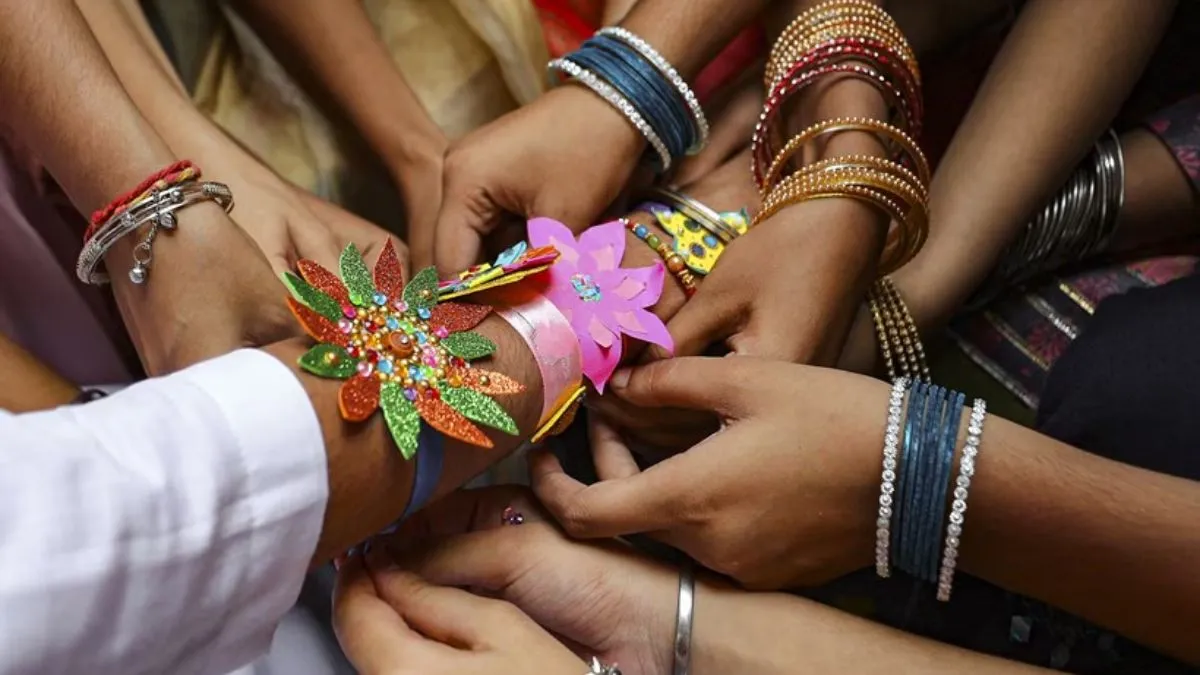Raksha Bandhan 2025 Scams: Raksha Bandhan, the festival celebrating the bond between brothers and sisters, is marked not only in India but also by Indian communities worldwide, from the US and UK to Australia, Canada, and the Gulf. But, Cyber experts warn that criminals are increasingly hijacking the festive spirit with advanced online scams. Cybersecurity firm CloudSEK has said there has been a steep uptick in Raksha Bandhan-related fraud against consumers, gift-givers, and social media users. Criminals are taking advantage of the online buying boom for rakhis, sweets, and gifts, tricking victims with impersonator e-commerce websites, phishing attacks, and UPI payment fraud.
Phishing Messages And Malicious Links
According to CloudSEK, fraudsters send a large number of messages saying that “Your Rakhi gift is on the way” and “get exclusive Raksha Bandhan offers.” Usually, these have a malicious link with malware or may redirect to a phishing page that may ultimately aim at obtaining the payment credentials. One noteworthy method is URLs that seem to include a genuine brand name with an “@” symbol added to the end, such as [email protected], misleading individuals into thinking they’re accessing a familiar site, when actually the destination site is an evil domain.
Spoofed E-Commerce Sites And Social Media Marketing
Cybercriminals have been creating false websites and Facebook or Instagram pages featuring “too good to be true” Rakhi offers like giving iPhones at ₹599 with a festival discount. These replica sites replicate popular platforms but may contain typing mistakes or questionable domains and redirect all payments to scammer wallets. CloudSEK experts detected a spoofed website, rakshabandhanoffer.in.net, that eerily resembled an authentic e-commerce website but existed only to steal banking information.
Courier Scams And False Delivery Alerts
In several instances, victims reported the sending of false courier messages stating a Rakhi parcel had been held back due to an “incomplete address” and asking them to pay a modest re-delivery charge. When victims clicked on the link or scanned a QR code, their banking credentials were stolen. A Bengaluru victim, an Air Force cook, lost Rs 1.6 lakh after unwittingly dialing a scam DTDC “helpline” number displayed on a fake tracking page.
UPI And Gift Card Fraud
One more prominent trend includes spammers sending duplicate messages with promises of Rs 5,000 gift vouchers under the Prime Minister’s Mudra Yojana. Victims, upon clicking on the link, were redirected to phishing pages that initiated intent-based UPI payment requests through applications such as Paytm or PhonePe. One such fraud was traced by investigators to a UPI ID 34161FA82032*AA2D24E6B40@mairtel of a business “udayrajkiranastore.” The operator, Shyam Saini, had inadvertently put the same payment code on his Facebook page.
Emotional Manipulation And Impersonation Scams
In Mumbai, a 22-year-old woman lost Rs 8.20 lakh after an Instagram contact claiming to be her “London-based brother” asked her to pay several “customs and delivery charges” for a fake Rakhi gift. In Chandigarh, a customer in need of assistance with a Rs 150 Rakhi order was duped by impostors claiming to be Flipkart and Axis Bank support, involving losses of almost Rs 49,000.
Tech Support Traps And Screen-Sharing Risks
Some of these scammers pose as e-commerce customer care and convince victims to show their phone screens through video calls. After they dial in, they try to install malicious apps and steal OTPs. India Today published a report from Kanpur where a customer saved herself from losing money after she did not agree to show her screen during such an incident.
ALSO READ: Trump Hotel Rental’: How App Using US President’s AI-Generated Visuals Defrauded Over 800 Investors?
Stay Safe This Raksha Bandhan
Online buyers and social media users are advised to:
• Purchase from authenticated platforms and legit apps.
• Verify website URLs for errors and secure “https://” connection.
• Don’t click on unsolicited messages or advertisement links.
• Decline any surprise UPI “collect” requests or QR codes.
• Monitor parcels only through authorised courier portals.
• Immediately report scams to the National Cybercrime Reporting Portal (cybercrime.gov.in) or dial the cyber helpline 1930.
ALSO READ: Chinese Hacker Arrested In Italy For Stealing US COVID-19 Vaccine Research On Orders From Beijing
While Raksha Bandhan is being observed in Indian homes from New Jersey to New Delhi, cybercrooks haven’t been respectful of geography or emotion. Targeting an Indian family in Sydney or a university student in Mumbai, the fraud schemes are the same emotional baits, false promises, and technical tricks to clean out accounts.
